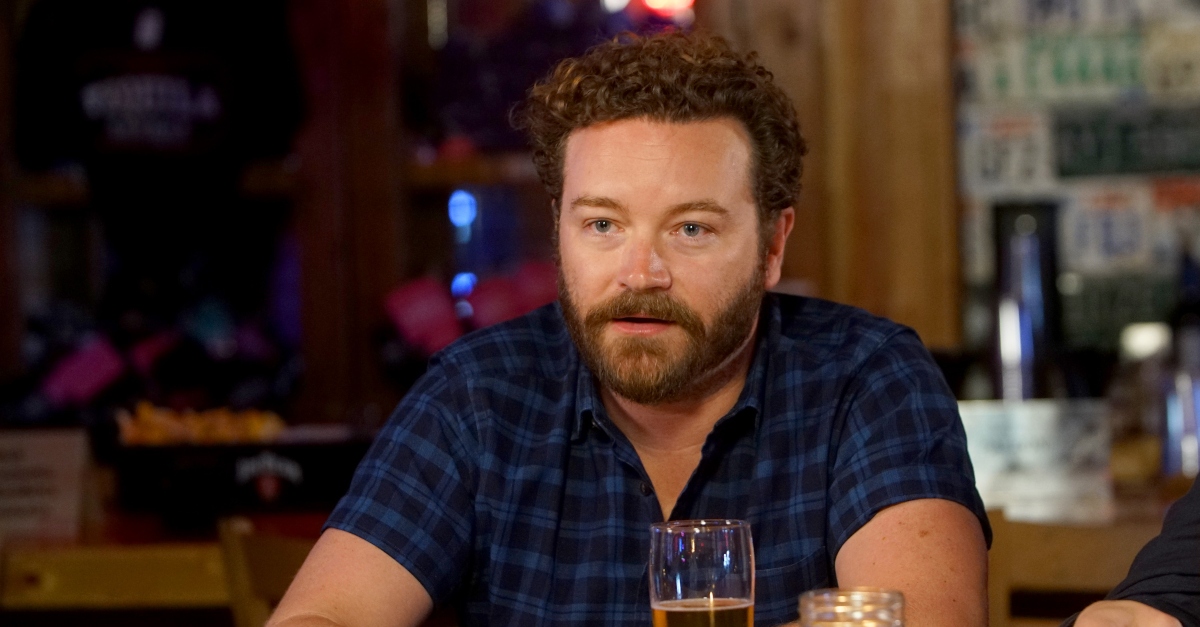
Like sexual assault cases against Bill Cosby and Harvey Weinstein, the case against Hollywood actor Danny Masterson will likely come down to the question of credibility.
Masterson, widely known for his role in That ’70s Show, is charged with three counts of rape “by force or fear” involving allegations from the early 2000s made by three different women who were then in their 20s. While the identities of the alleged victims were not made public by the DA’s Office, a 2019 civil lawsuit filed against Masterson by two of his ex-girlfriends and two unidentified Jane Does alleging similar crimes suggests that at least one of the alleged victims in the criminal case dated him.
Under the California rape statute in question, Masterson can only be found guilty if the evidence shows that he (1) had sex with the victim (2) against her will (3) by means of force or “fear of immediate and unlawful bodily injury” and (4) the victim wasn’t his wife (Yes, that’s right, this California law still calls for a finding that the victim and perpetrator were not married).
As in the Cosby and Weinstein cases, resolving the question of consent and force at trial will likely turn on testimony from the women. While some defense attorneys have softened their strategies in the wake of the #MeToo movement, prior statements from Masterson and his representatives suggest that he will aggressively challenge the credibility of the women.
The charges come two years after the LAPD confirmed it was looking into allegations of sexual assault against Masterson, resulting in Netflix firing him. When no criminal charges materialized, four women — Masterson’s ex-girlfriends Chrissie Carnell Bixler and Marie Bobette Riales and two unidentified Jane Does — sued Masterson and the Church of Scientology civilly. The suit suggested the church had engaged in a campaign of stalking and harassment against the women to protect Masterson, a Scientologist, against their allegations of sexual assault. The suit outlined sexual assault allegations against Masterson by all four women which all included violence and suggestions that Masterson “drugged” their drinks.
Masterson called the lawsuit “beyond ridiculous” and said, “I’m not going to fight my ex-girlfriend in the media like she’s been baiting me to do for more than two years. I will beat her in court—and look forward to it because the public will finally be able learn the truth and see how I’ve been railroaded by this woman.” Masterson doubled down in February, when his civil attorney Andrew B. Brettler filed a demurrer in the case calling the sexual assault allegations “wild” and suggesting that the suit was a “shameful money grab” and “publicity stunt” by Masterson’s exes, who had “participated in an anti-Scientology television series” — a reference to actress Leah Remini‘s television 2016 television series that criticized Scientology. Another Masterson rep had claimed that two of the women only came forward after “connecting” with Remini.
It will now be up to Masterson’s defense attorney Tom Mesereau, who also represented Cosby, to frame the narrative. In his statement to Law&Crime, Mesereau gave an early indication that he will both vigorously contest the credibility of the alleged victims and assert that Masterson is “innocent.” He said his client “will be exonerated when all the evidence finally comes to light and witnesses have the opportunity to testify.”
Mesereau may also have to battle evidence of “prior bad acts,” similar to the ones he faced in the Cosby case. It just so happened that on Tuesday the Pennsylvania Supreme Court agreed to hear Cosby’s appeal of his sexual assault conviction in the Andrea Constand case. One of the issues the court agreed to review was the trial judge’s decision to allow “prior bad acts” witnesses to testify against Cosby.
The LA DA’s Office stated that it had declined to file sexual assault charges in two other cases, one for a statute of limitations lapse, leaving open the possibility that the prosecution could seek to introduce evidence of that case as a “prior bad act” under California Evidence Code Section 1108.
[Photo by Anna Webber/Getty Images for Netflix]